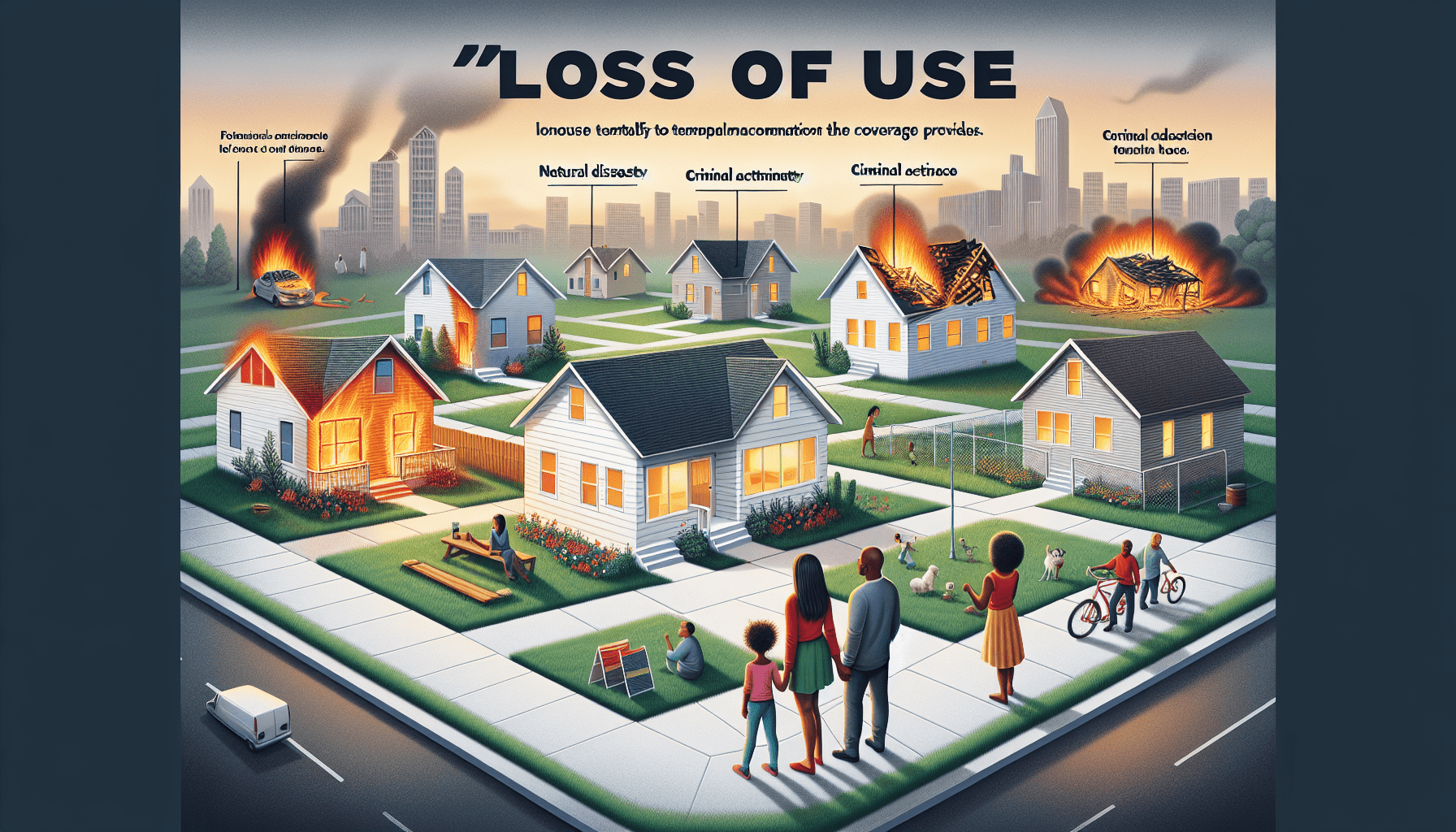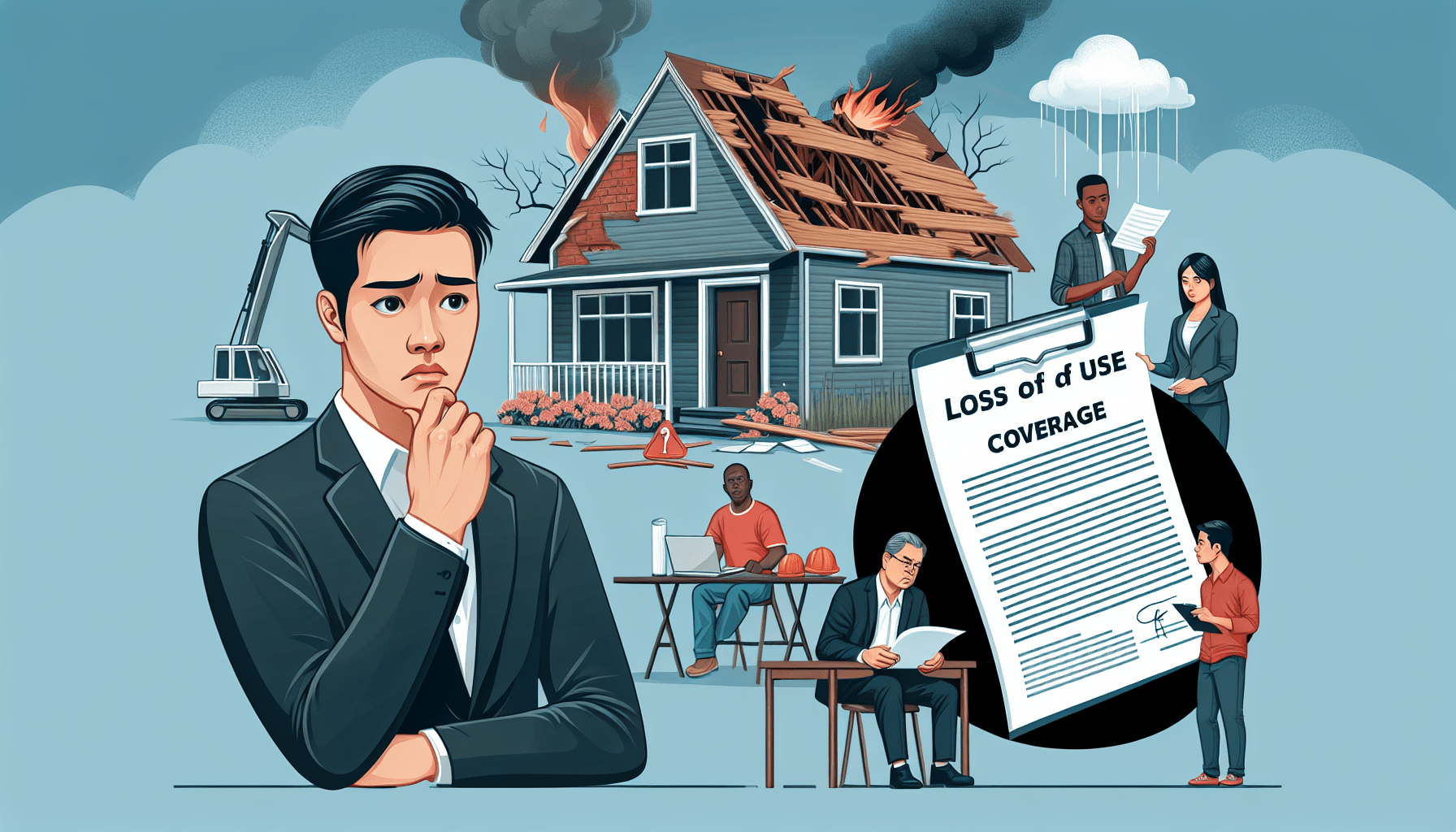Loss of Use Coverage is a key part of property insurance that offers financial help when a covered event makes a property unlivable. This coverage helps with extra living costs or lost rental income, providing stability in tough times. For those in real estate, insurance, and property management, understanding Loss of Use Coverage can impact decision-making and risk management.
What is Loss of Use Coverage?

Loss of Use Coverage, also called Additional Living Expenses (ALE) protection, reimburses policyholders for further prices incurred while their property is being repaired or rebuilt after an insured occasion. This usually contains:
- Temporary housing prices (resorts, rental houses, residences)
- Increased meal bills (if compelled to eat out resulting from lack of kitchen entry)
- Transportation prices (if relocation will increase commuting distance)
- Storage charges (if belongings want short-term storage)
- Lost rental revenue (for landlords whose properties are uninhabitable)
How Loss of Use Coverage Works
Eligibility and Coverage Limits
Loss of Use Coverage is mostly included in householders insurance coverage (HO-3) and landlord insurance coverage insurance policies. Coverage limits are sometimes a proportion of the entire dwelling protection (e.g., 20-30%). For instance, if a house is insured for $300,000 with a 30% Loss of Use restriction, the policyholder can obtain as much as $90,000 for further bills.
Common Covered Events
Policies usually cover:
- Fire and smoke injury
- Storm injury (hurricanes, tornadoes, windstorms)
- Water injury from burst pipes
- Vandalism or theft rendering the property unsafe
However, floods and earthquakes often require separate protection.

Exclusions and Limitations
Loss of Use Coverage doesn’t cover:
- Normal residing bills (e.g., normal grocery payments)
- Loss of revenue resulting from voluntary evacuation
- Costs past the coverage’s time or financial restrict
Real-Life Examples of Loss of Use Coverage in Action
Example 1: Homeowner Scenario
A homeowner experiences a home hearth, making their residence uninhabitable. Their insurance coverage offers $100 per night for resort stays, covers restaurant meals, and pays for storage of private belongings while the home is repaired.
Example 2: Landlord Scenario
A landlord’s rental property is broken in a storm, displacing tenants for six months. The coverage reimburses them for the misplaced rental revenue through the restore interval, stopping monetary pressure.
Pro Tips for Maximizing Loss of Use Coverage

📌 Maintain comprehensive records: Preserve receipts for accommodations, dining, and various expenses.
📌 Understand your coverage limits—know the proportion of dwelling protection allotted to loss of use.
📌 Engage with your insurer—promptly inform them when filing a claim to speed up the processing.
📌 Explore further protection—consider riders or endorsements when you personal rental properties.
How to File a Loss of Use Claim
- Document the injury. Take photographs and collect proof.
- Notify your insurance coverage supplier. Report the loss as quickly as possible.
- Track further bills. Keep all receipts associated with elevated prices.
- Work with adjusters. Provide vital documentation to help your declaration.
- Receive reimbursement: After evaluating, insurers usually problem funds for eligible bills.
Conclusion
Loss of Use Coverage is an essential protection that maintains financial stability during unexpected property damage. Whether you’re a homeowner, landlord, or property manager, understanding this coverage helps protect you from unforeseen financial challenges. Have you ever experienced a claim involving loss of use coverage? Share your story in the comments!
Outbound Links:
- National Association of Insurance Commissioners
- Insurance Information Institute
- FEMA Disaster Assistance






